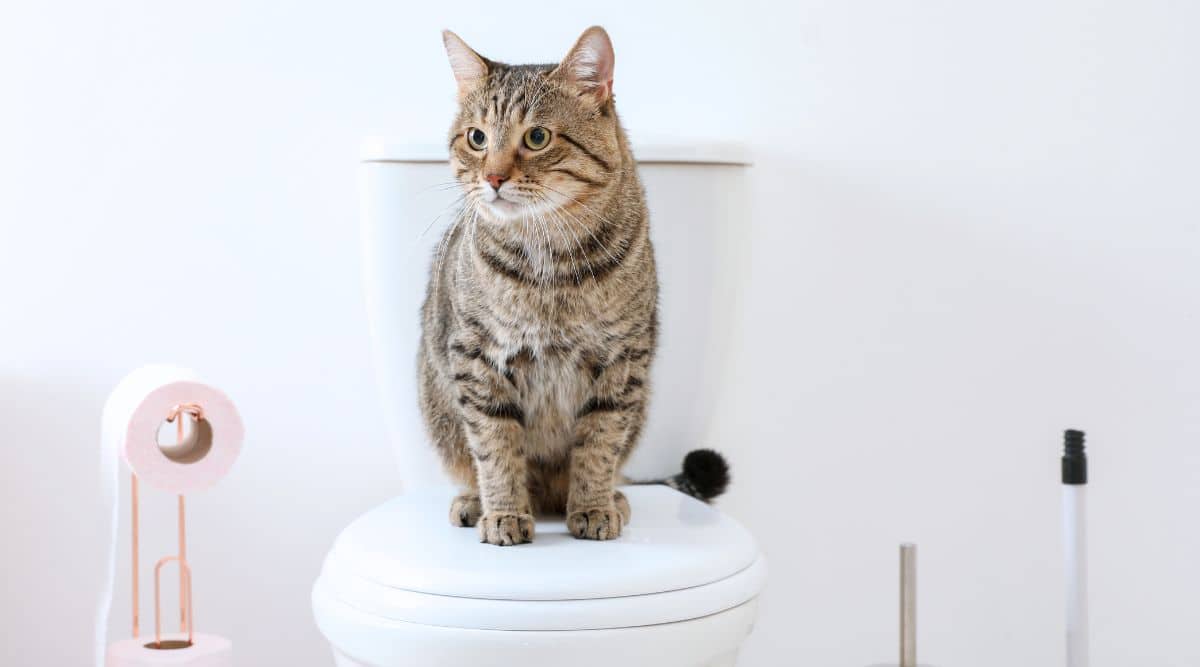Avoid Clogs and Damage: Never Flush Cat Poop Down Your Toilet - Professional Insights
Avoid Clogs and Damage: Never Flush Cat Poop Down Your Toilet - Professional Insights
Blog Article
We've uncovered this post involving How to Dispose of Cat Poop and Litter Without Plastic Bags below on the net and figured it made sense to discuss it with you in this article.

Intro
As cat owners, it's vital to be mindful of how we deal with our feline buddies' waste. While it might appear convenient to flush cat poop down the commode, this technique can have destructive effects for both the setting and human wellness.
Ecological Impact
Flushing cat poop presents unsafe microorganisms and parasites right into the water, presenting a substantial danger to marine ecosystems. These contaminants can negatively influence aquatic life and compromise water high quality.
Wellness Risks
In addition to environmental worries, flushing pet cat waste can also pose wellness risks to humans. Feline feces might have Toxoplasma gondii, a parasite that can trigger toxoplasmosis-- a potentially severe health problem, particularly for expecting women and people with damaged body immune systems.
Alternatives to Flushing
Fortunately, there are safer and extra liable methods to deal with pet cat poop. Think about the complying with choices:
1. Scoop and Dispose in Trash
One of the most usual approach of disposing of pet cat poop is to scoop it right into a naturally degradable bag and throw it in the trash. Make certain to utilize a committed trash inside story and get rid of the waste quickly.
2. Use Biodegradable Litter
Go with eco-friendly cat clutter made from materials such as corn or wheat. These trashes are eco-friendly and can be securely dealt with in the trash.
3. Bury in the Yard
If you have a yard, consider burying cat waste in a designated location far from vegetable gardens and water sources. Make certain to dig deep adequate to avoid contamination of groundwater.
4. Install a Pet Waste Disposal System
Invest in a pet garbage disposal system specifically designed for cat waste. These systems make use of enzymes to break down the waste, minimizing smell and environmental effect.
Final thought
Responsible family pet possession prolongs past providing food and shelter-- it additionally involves appropriate waste administration. By refraining from flushing cat poop down the bathroom and opting for alternate disposal techniques, we can reduce our environmental impact and safeguard human health.
Why You Should Never Flush Cat Poop Down the Toilet
A rose by any other name might smell as sweet, but not all poop is created equal. Toilets, and our sewage systems, are designed for human excrement, not animal waste. It might seem like it couldn’t hurt to toss cat feces into the loo, but it’s not a good idea to flush cat poop in the toilet.
First and foremost, assuming your cat uses a litter box, any waste is going to have litter on it. And even the smallest amount of litter can wreak havoc on plumbing.
Over time, small amounts build up, filling up your septic system. Most litter sold today is clumping; it is made from a type of clay that hardens when it gets wet. Ever tried to scrape old clumps from the bottom of a litter box? You know just how cement-hard it can get!
Now imagine just a small clump of that stuck in your pipes. A simple de-clogger like Drano isn’t going to cut it. And that means it’s going to cost you big time to fix it.
Parasitic Contamination
Believe it or not, your healthy kitty may be harboring a nasty parasite. Only cats excrete Toxoplasma in their feces. Yet it rarely causes serious health issues in the cats that are infected. Most people will be fine too if infected. Only pregnant women and people with compromised immune systems are at risk. (If you’ve ever heard how women who are expecting are excused from litter cleaning duty, Toxoplasma is why.)
But other animals may have a problem if infected with the parasite. And human water treatment systems aren’t designed to handle it. As a result, the systems don’t remove the parasite before discharging wastewater into local waterways. Fish, shellfish, and other marine life — otters in particular — are susceptible to toxoplasma. If exposed, most will end up with brain damage and many will die.
Depending on the species of fish, they may end up on someone’s fish hook and, ultimately on someone’s dinner plate. If that someone has a chronic illness, they’re at risk.
Skip the Toilet Training
We know there are folks out there who like to toilet train their cats. And we give them props, it takes a lot of work. But thanks to the toxoplasma, it’s not a good idea.

We had been made aware of that editorial about Don’t flush cat feces down the toilet from an associate on another domain. Enjoyed reading our piece? Please share it. Let another person locate it. Thanks for taking the time to read it.
Click Here Report this page